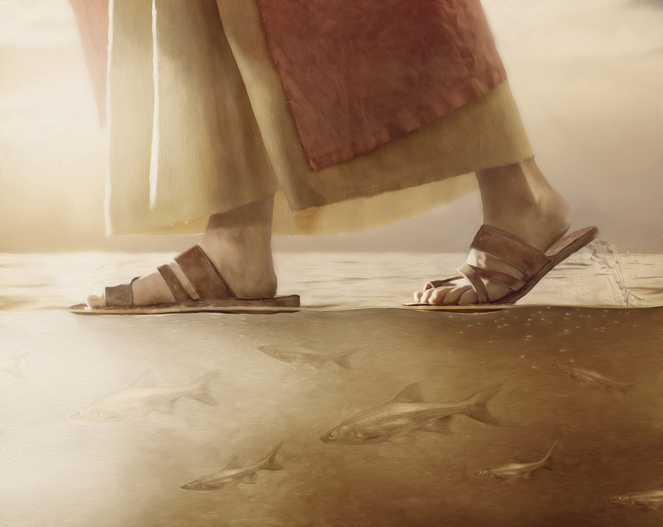This is a short but somewhat confusing Gospel, wherein Jesus seems to casually dismiss his own family, even his own mother! “Who is my mother? …. Here are my mother and my brothers. For whoever does the will of my heavenly Father is my brother, and sister, and mother.” Was he disregarding the closeness of Mary, his own mother? Was he just speaking in hyperbole to get everyone’s attention? Did he just want everyone to feel like a big, happy family?
None of those. The “key” to understanding is found in the Alleluia antiphon: “Whoever loves me will keep my word, and my Father will love him and we will come to him.” These words are taken from John 14, one of the most fully packed chapters in the Gospels; Chapters 14-17 are known as the Farewell Discourse given by Jesus at the Last Supper. In that discourse, Jesus expresses over and over again the unity of love between the Father and the Son, in the Spirit; he expresses several times the mutual indwelling of God and each baptized person who remains in the state of grace.
He goes to prepare a place for us, “that where I am you may be also” (Jn 14: 3). And where is Jesus going? To the Father, to the Bosom of the Father: “I am in the Father and the Father in me” (Jn 14:10). That’s where we are created to be also: in the very heart of the Father, as His true children, in Christ.
And how do we get there? By lovingly keeping the commandments: “He who has my commandments and keeps them, he it is who loves me; and he who loves me will be loved by my Father, and I will love him and manifest myself to him…If a man loves me he will keep my word and my Father will love him, and we will come to him and make our home with him” (Jn 14:21,23). “Our home.” God’s dwelling is with us; with us, God is home. And we are at home with God!
Toward the end of this long discourse (well worth reading over and over again!), just before they all leave for Gethsemane, Jesus addresses the Father directly, with some of the most profound words of Scripture, asking that “all may be one; even as thou, Father, are in me and I in thee, that they also may be in us… (Jn 17:20). God in man, and man in God, as ONE.
Jesus’ deepest desire is that we are all united as true members of his Body, that we all may enjoy the infinite and perfect love of the Father, as the Son has for all eternity! Jesus’ deepest desire is that we enter into the very exchange of love of the Trinity, where Jesus IS, as true children of the Father!
If we keep Jesus’ command of love, we remain near as his “brother, and sister, and mother.”

Kathryn Mulderink, MA, is married to Robert, Station Manager for Holy Family Radio. Together they have seven children (including newly ordained Father Rob and seminarian Luke ;-), and two grandchildren. She is a Secular Discalced Carmelite and has published five books and many articles. Over the last 25 years, she has worked as a teacher, headmistress, catechist, Pastoral Associate, and DRE. Currently, she serves the Church as a writer and voice talent for Catholic Radio, by publishing and speaking, and by collaborating with the diocesan Office of Catechesis, various parishes, and other ministries to lead others to encounter Christ and engage their faith. Her website is https://www.kathryntherese.com/.



















